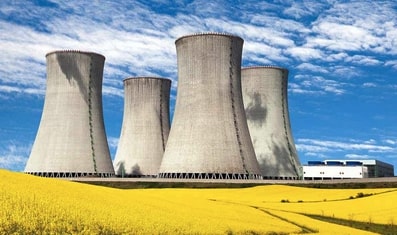Now Reading: Copenhagen Atomics CEO: Nuclear Energy Key to Powering Terawatt AI
-
01
Copenhagen Atomics CEO: Nuclear Energy Key to Powering Terawatt AI
Copenhagen Atomics CEO: Nuclear Energy Key to Powering Terawatt AI

Swift Summary
- the rising demand for energy from AI data centers globally is leading to strategic shifts in energy production, particularly toward nuclear power, alongside natural gas, solar, and battery scaling.
- TSMC projects a tenfold increase in AI GPU production by April 2025, with energy demands potentially exceeding 1 terawatt annually for data centers by the 2030s.
- Global electricity capacity currently stands at 3.5 TW out of total world energy production of 20 TW; significant growth will be required to meet projected demands.
- Fossil fuels (coal, oil, and gas), while scalable and cost-efficient in the near term, may face limitations given long-term environmental considerations.
- Wind and solar power are unlikely to meet large-scale needs due to lower capacity factors and higher costs relative to alternatives like coal or gas.
- copenhagen atomics proposes innovative thorium nuclear reactors as a scalable solution; these reactors are compact (container-sized) with estimated costs at $50M per unit generating 42 MW each. They estimate electricity prices as low as $20/MWh with high-efficiency output.
Indian Opinion analysis
India faces critical implications from the global trends outlined. As AI adoption accelerates domestically-spanning fields such as healthcare diagnostics,agriculture optimization,and smart city infrastructure-the country must preemptively scale up its energy arsenal.India’s current heavy reliance on coal means it could face environmental trade-offs unless cleaner technologies like nuclear or renewable sources gain prominence.
The proposed thorium-based compact reactors offer an intriguing path forward due to their cost-effectiveness compared to conventional technologies. India’s ancient engagement with thorium-based research through its three-stage nuclear program positions it uniquely among nations exploring such innovations-a potential competitive advantage.
Still, marrying industrial-scale AI advancement with sustainable energy practices requires resolving policy bottlenecks tied to licensing delays and funding gaps in new technologies like advanced nuclear systems. India may also need global partnerships-as an example drawing expertise from solutions offered by Copenhagen Atomics-to bridge its infrastructure shortfalls.
Further groundwork lies ahead before India can seamlessly expand both AI capabilities and requisite supporting energies within cost-effective frameworks balancing resource constraints against heightened demand.Read More


























